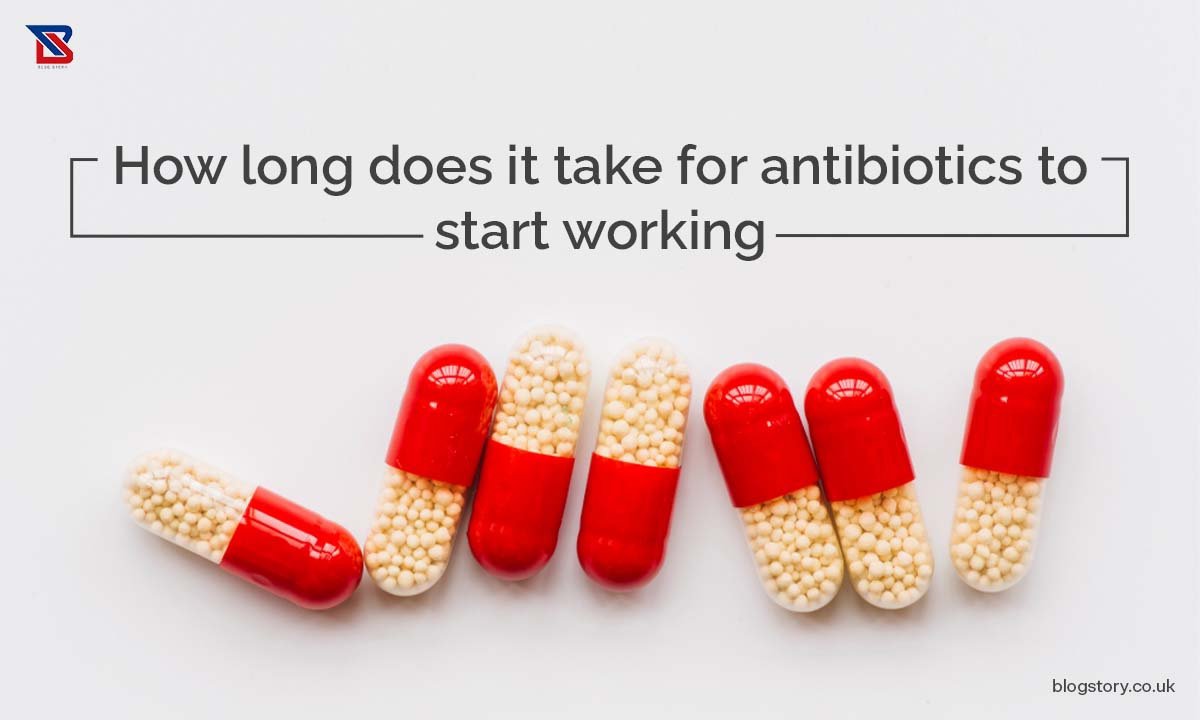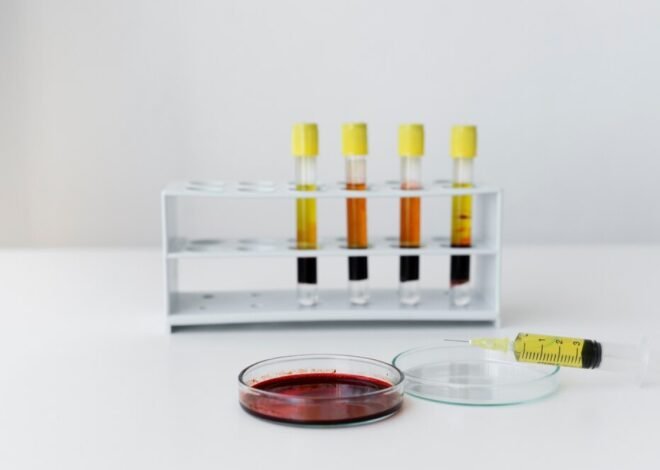
How Long Does It Take For Antibiotics To Start Working?
Curious about the timeline for antibiotic effectiveness? “How Long Does it Take for Antibiotics to Start Working?” is a pretty common question with crucial indications for managing infections.
Understanding this timeline is essential for optimizing treatment outcomes and ensuring timely relief from bacterial illnesses.
In this comprehensive guide, we delve into the factors influencing antibiotic efficacy and provide insights into what to expect during the course of treatment.
From the mechanism of action to the specific type of infection being treated, various variables can influence the onset of antibiotic effects.
Whether you’re grappling with a sinus infection, urinary tract infection, or any other bacterial ailment, knowing when relief might kick in is key to managing expectations and fostering patient compliance.
Antibiotics And Its Compositions
Antibiotics are drugs utilized to combat bacterial infections in humans and animals. They function either by eliminating bacteria or by inhibiting their growth and reproduction.
These medications can be administered orally, topically, through injection, or intravenously, with the latter usually reserved for severe infections.
One of the first antibiotics to be discovered by accident was penicillin which was found by Trusted Source.
The first evidence of penicillin came from a piece of mold growing on a Petri dish.
The mold was a type of fungus that naturally produced the antibiotic.
Scientists discovered that penicillin could be produced in large quantities in a laboratory by fermentation with the fungus. Some other early antibiotics came from bacteria found in the ground soil.
Today, all antibiotic drugs are made in a laboratory.
Some antibiotics are made by chemical reactions that create the active ingredient. Others are at least partially made by natural but controlled processes.
These processes are often enhanced by chemical reactions that modify the active ingredient to create a new medication.
So, what does an antibiotic treat and how long does it take for antibiotics to start working?
Well, we will answer them all.
What Does Antibiotics Treat?
Bacterial infections are treated with antibiotics.
Sometimes it can be hard to tell if you have a bacterial infection or a viral infection because symptoms are often similar.
Your healthcare provider will assess your symptoms and do a physical examination to find out what’s causing your infection. They may also ask you to take a blood test or urine test.
Bacterial infections are caused by bacteria and include infections of the urinary tract, sinuses and ears, and strep throat.
Viruses are treated with antibiotics, but they are not effective against infections like the common cold and flu.
Fungal infections are also treated with antibiotics but are different from other types of infections.
These include yeast infections, athlete’s foot infections, fungal nail infections, and ringworm.
If you have been wondering how long does it take for antibiotics to start working, keep reading to find out.
How Do The Antibiotics Work?
Antibiotics are drugs that treat bacterial infections by disrupting various pathways in the body that allow bacteria to survive and multiply.
Bacteria have protective cell walls that protect them from the environment inside the body.
These protective cell walls contain the DNA and proteins that bacteria need to reproduce sexually.
Bacterial infections can be treated in three ways.
First, antibiotics can kill bacteria by breaking down their protective cell walls, or by preventing them from forming.
Second, antibiotics can stop bacteria from reproducing by interfering with their ability to replicate their DNA.
Third, antibiotics can block bacteria from multiplying by interfering with their metabolism.
These three ways of treating bacterial infections are known as bactericidal, bacteriostatic, and bacteriostatic drugs, respectively.
Depending on the dose prescribed and how far your infection has progressed, some antibiotics may work both ways.
Now the question arises how long does it take for antibiotics to start working?
Let’s take a deeper dive into it next.
How Long Does It Take For Antibiotics To Start Working?
It takes about an hour for antibiotics to reach maximum levels in the body, but symptom relief may take a few days, as some of the symptoms are caused by the body’s immune response.
Some antibiotics work immediately (e.g. Fosfomycin) and require only one dose to work, while others (e.g., Tetracycline) may take several weeks and require multiple doses.
The time frame depends on the nature of the infection and the bacteria’s ability to respond to the antibiotic.
The majority of antibiotics should be used for 7-14 days, although shorter treatments may work as well.
It’s best to complete an entire antibiotic regimen to completely resolve the infection and avoid antibiotic resistance.
Factors that influence the timeframe include:
- The type and severity of infection
- The type of antibiotic used
- Individual health factors.
- The level of antibiotic resistance in the community
Some infections, such as urinary tract infections, may improve immediately after initiation of treatment. Others, such as respiratory infections, may require several days or a week to show significant improvement.
Thus, now you are aware about how long does it take for antibiotics to start working.
Antibiotic Resistance And Effect Of The Drugs
Antibiotics are powerful medications that can be used to treat a variety of illnesses.
However, antibiotics are becoming less effective as certain bacteria become resistant to certain antibiotics although you now know how long does it take for antibiotic to start working.
Antibiotic resistance occurs when certain antibiotics are no longer able to control or kill certain bacteria.
As a result, antibiotics are no longer effective in treating certain conditions.
Antibiotic resistance is a condition in which certain bacteria have special characteristics that make them resistant to antibiotics.
In the United States, antibiotic resistance is estimated to be at least as high as 35,000 people die each year from bacterial infections caused by antibiotic resistance.
Some of the most common antibiotic resistance cases include:
- Clostridioides difficile difficile (C. diff)
- Vancomycin-resistant enterococcus (VRE)
- Methicillin-resistant Staphylococcus aureus (MRSA)
- Carbapenem-resistant Enterobacteriaceae (CRE)
How To Take Antibiotics Correctly
Antibiotics should always be taken with caution. Here are some ways in which you can take antibiotics correctly:
- Always take your medication according to the instructions. Even if you are feeling better, you should still take your medicine. If you take your medication too early, some bacteria can survive and infect you again.
- Don’t hold off on your antibiotics.
- Do not distribute your antibiotic to others.
- Do not take antibiotics that have been prescribed for another person. This can delay your treatment, worsen your condition, or lead to side effects.
Final Thoughts
Antibiotics are used to treat bacterial infections by attacking a bacteria’s cell walls, damaging its DNA to stop it from reproducing or targeting its metabolism to prevent it from reproducing.
How long does it take for antibiotics to start working? Once a course of antibiotics is started, they will work almost immediately, although there may be delays in symptom relief.
The duration of treatment depends on the diagnosis and the bacteria’s response to the antibiotic.
Your doctor will prescribe broad-spectrum (broad) antibiotics that treat a variety of bacteria, while narrow-spectrum (narrow) antibiotics that target a particular type of bacteria.
It is important to complete a full course of antibiotics to prevent a recurrence.
You May Like Also:












